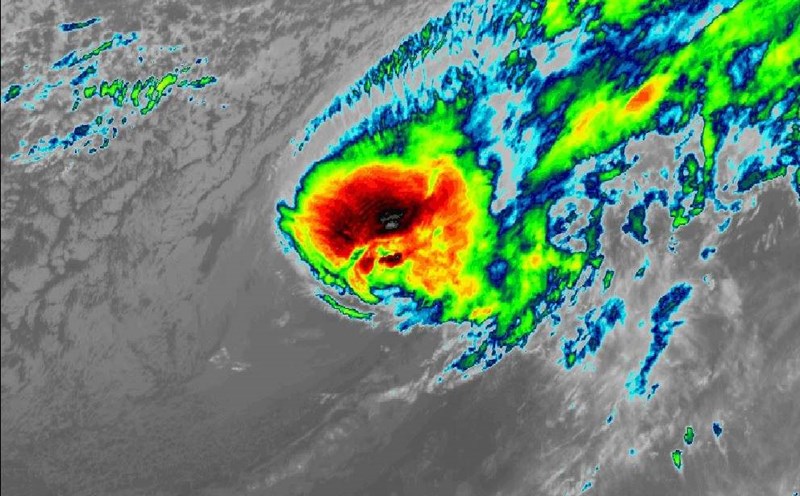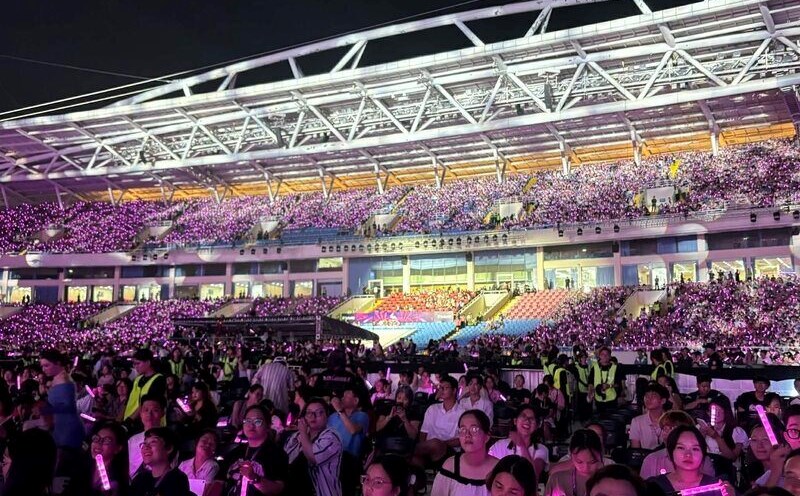Extend the broadcast
It is hard to deny the appeal of Vietnamese films in recent years. Many films with familiar, simple family themes make many viewers see themselves in them and attract viewers of many ages to sit in front of the TV screen every hour the film is broadcast. However, there is a common reality of Vietnamese prime-time films: the state of exhaustion at the end of the film despite receiving a lot of attention from the first episodes on air.
The most recent is the movie “Di giua troi ruc ro” starring the duo Thu Ha Ceri (as Pu) and Long Vu (as Chai). In the first part of the movie, the couple Pu - Chai almost became a phenomenon on social networks with lovely, youthful movie scenes. With the appearance of a cast of young, “brand new” faces on prime time and a youthful theme, not heavily tragic, “Di giua troi ruc ro” is like a breath of fresh air for the audience.
Towards the end, when Pu leaves the village to go to the city to study at university, the screenwriter shows more and more exhaustion with long, unreasonable details. Throughout many episodes, Pu has feelings for Thai (played by Vuong Anh Ole). In the last episodes, she suddenly changes dramatically and quickly accepts Chai's feelings even though she always tried to avoid them. The film does not have a big enough turning point for the female lead to change, making many viewers bored and thinking that the screenwriter is forcing Pu - Chai to come together to quickly end the film.
Not only “Di giua troi ruc ro”, before that, films such as “Ve nha di con”, “Huong vi tinh than”, “Gia dinh minh vui bat thinh linh”... were all films that had great appeal due to their cast, diverse themes and were hotly discussed on social networks when the films were broadcast. These films all encountered the problem of “A flash in the pan” with long, drawn-out plots that caused controversy among the audience and did not maintain the appeal as in the first part of the film.
Many popular films have announced an increase in the number of episodes, but this has had the opposite effect because of the long, drawn-out plots and has been criticized as not being suitable for the plot. For example, the film “Gia dinh vui bat thinh linh” was praised by the audience for its humorous plots and talented cast. The film’s announcement of an extension of the number of episodes and the addition of plots about Tram Anh’s (played by Kha Ngan) ex-lover as well as the plot of Cong (played by Quang Su) having cancer and divorcing Phuong (played by Kieu Anh) was considered absurd, unrealistic and contrary to the original plot of the film which was humorous and fun.
The ending is the weak point
In 2022, the movie “Dau tri” aired with the expectation of mentioning the painful issues in society at that time. Gathering a “huge” cast, a very “hot” topic, however, many viewers who persistently followed the movie to the end were disappointed because the movie ended when everything was not resolved.
In the last 3 episodes, the plot is pushed to a climax, but the process of solving the case is criticized as lacking breakthroughs and details with weight. The audience can easily guess who will pay the price at the end of the film, while the mysterious characters and the "final boss" mentioned at the beginning of the film also "disappear" without a trace.
Or like the movie “Huong vi tinh than” which was a hit for a while and received a lot of praise from the audience for part 1 of the movie. In part 2, the movie had many details that were considered to be long-winded and unreasonable...
If not "greedy" for long details, knowing when to stop, many films will leave a good impression on the audience and create the premise for the next films. Films that end reasonably, at the right stopping point and receive compliments from the audience such as "Gap em ngay nang", "Vui len nao anh em oi" ... are all praised by the audience and the feeling of regret when the film ends will probably create a feeling of anticipation for the audience when watching the upcoming films of these actors.













